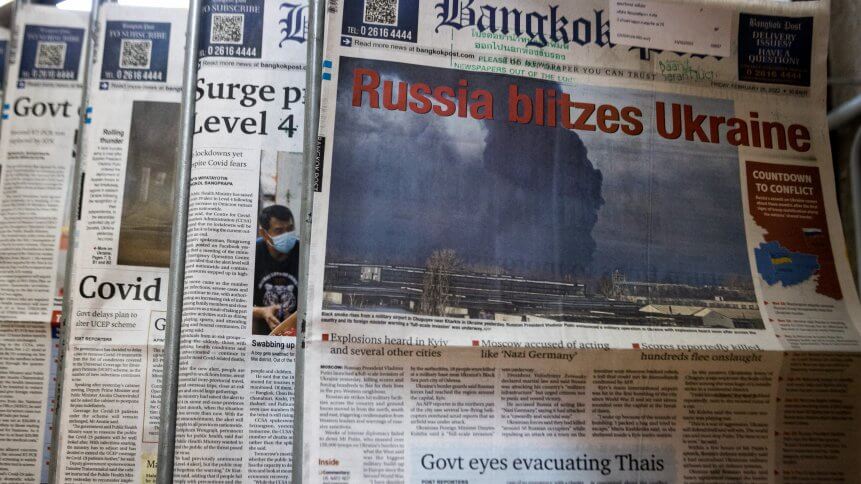Will the Russia-Ukraine conflict worsen present chip shortages?

- Russia accounts for less than 0.1% of global chip purchases that is facing ongoing shortages, making the country an insignificant direct consumer of semiconductors
- Experts do not believe there are immediate supply disruption risks related to Russia and Ukraine
The global semiconductor industry has had a horrendous time over the last two years, instigated by the pandemic. This year however, the possibility of chip shortages easing has been high. Then Russia invaded Ukraine, and that catastrophic event immediately casted another dark cloud over the silicon industry.
While this is not the first hurdle that has exerted additional pressure on the chip industry, it certainly appeared to be one of the most severe ones. Ironically, experts and analysts share mixed sentiments on how the conflict between both countries would play out for the global semiconductor sector.
For starters, the Semiconductor Industry Association (SIA) yesterday emphasized that Russia is a small market for the semiconductor industry, and its invasion of Ukraine doesn’t represent a threat that could further derail ongoing chip shortages. The group also highlighted that the US and allied sanctions against Russia are also unlikely to have a significant effect on industry sales.
SIA Chief Executive Officer John Neuffer, in a statement, said “While the impact of the new rules to Russia could be significant, Russia is not a significant direct consumer of semiconductors, accounting for less than 0.1% of global chip purchases. In addition, the semiconductor industry has a diverse set of suppliers of key materials and gasses, so we do not believe there are immediate supply disruption risks related to Russia and Ukraine.”
There were also assurances from major companies that have issued statements for customers. Intel reckons that they “do not anticipate any impact on our supply chain.” The chip giant’s strategy of having a diverse, global supply chain minimizes its risk of potential local interruptions, Intel claims.
Even GlobalFoundries Inc., the US’s largest provider of outsourced chipmaking, said having plants around the world — with their own localized suppliers — helps mitigate risk. The company has factories in upstate New York, Singapore, and Dresden, Germany. “At GlobalFoundries, we do not anticipate a direct risk. We are not totally immune to global shortages, but our footprint provides us with more insulation,” the company said in a statement.
Russia & Ukraine: Major exporters of key raw materials impacting chip shortages
Ukraine is known to be the leading exporter of highly purified neon gas — a necessary element for the manufacture of lasers that are used to etch circuit designs into silicon wafers to create chips. Russia, meanwhile, is the world’s leading producer of palladium, which is essential for many memory and sensor chips.

(Source: JPMorgan via Bloomberg)
Russia also produces several other key raw materials for making computer chips, including the rare–earth metal scandium. Chip companies have been alert to possible choke points since 2014 when Russia annexed the separatist region of Crimea, and have diversified their suppliers since then. During the 2014 invasion, the price of neon shot up 600%, almost overnight, causing havoc in the semiconductor industry.
A recent report by Fortune suggests that “among the biggest concerns are supplies of several industrial gasses used in semiconductor lithography, the process of etching silicon wafers to turn them into computer chips. These include a gas known as C4F6, which is used in many of the most advanced chip-making processes, as well as neon and helium.”
Many of those gasses are produced as a byproduct of Russian steel production, but then refined by specialized Ukrainian firms for use by semiconductor manufacturers. “Owing to the cross-border nature of this trade, any war between Russian and Ukraine will almost certainly disrupt supplies,” the report suggests.
Overall, while supply disruptions from a Russia-Ukraine war and any subsequent sanctions are, experts say, unlikely to stop global chip production — the disruptions might just pinch capacity, especially for some smaller manufacturers. If that happens, it will likely cause a jump in semiconductor prices, at a time when chips have already become more expensive owing to exceptionally high demand and previous pandemic-related supply-chain disruptions.









